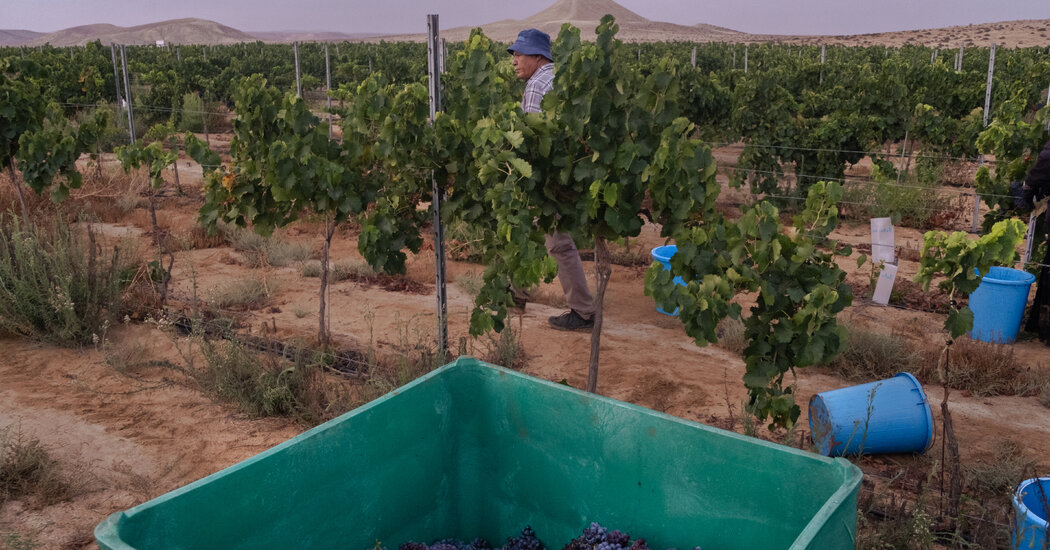SDE BOKER, Israel — Say “wine tasting,” and the words immediately conjure images of verdant hills in Napa Valley or Tuscany. What they don’t bring to mind: the desert.
But at a small cafe on a communal farm in the Negev Desert in southern Israel, a local winemaker was pouring a variety of deep crimson nectars last month, inviting some guests to swirl their glasses to release the fruity flavors and aromas.
As growers in more established wine-producing areas of Europe and elsewhere in the world battle unpredictable, extreme weather, including scorching heat waves, Israelis have found themselves at the vanguard of dry-weather wine production, testing approaches that might soon find more global application.
And the work is being done in the Negev, home to hundreds of technology start-ups and a futuristic solar tower — and long a laboratory for experimentation in Israel.
“It is in the Negev that the creativity and pioneering vigor of Israel shall be tested,” read an inscription on the cafe’s wall — an iconic quote from David Ben-Gurion, Israel’s founding prime minister, who lived out his last years about 50 yards away, in an austere wooden cabin.
Still, even Ben-Gurion probably could not have imagined the unexpected scene at the cafe, whose shelves were stacked with bottles of locally produced malbec, merlot and petit verdot syrah. He might have also blanched at the prices. The boutique winery produces a selection of 5,000 bottles in a good year, and they go for a pricey — by local standards — $27 to $45 a bottle.
“Water is very expensive here,” Zvi Remak, the local winemaker, said.
The cafe and winery are part of the Sde Boker communal farm, founded in 1952 and once better known for its less bourgeois products, peaches and sheep. But in the 1990s, Mr. Remak, a commune member and an agronomist, planted a vineyard and, after a period of study back in his native California, turned to winemaking.
“It was a bit complicated,” Mr. Remak recalled. He needed permission from the community, whose orientation had started out “almost Soviet” in its utilitarianism and whose decision makers needed some time to adjust to the idea of handcrafted reds aged in oak barrels.
But he convinced them, and then others followed in his footsteps. Today, about 40 boutique wineries are scattered throughout the Negev, their emerald-green vineyards dotting the stark beige landscape.
Desert viniculture, and the tourists beginning to explore this relatively new…
Click Here to Read the Full Original Article at NYT > Travel…
